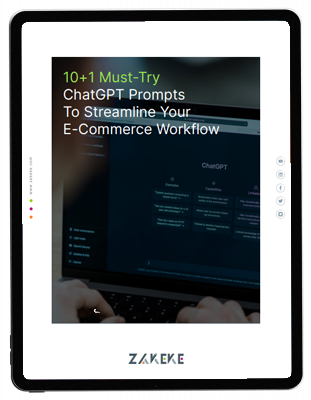Building links to your products and categories isn’t always easy. Brands would seldom want to promote others unless it’s mutually beneficial. Even then, opportunities to do so are scarce. It’s why eCommerce is one of the more challenging verticals to build links to.
However, this doesn’t mean it’s impossible.
If you’ve exhausted all your old link-building strategies but are still seeing a backlink drought, keep reading. This article is a playbook with proven eCommerce link-building strategies you can draw from to enable your site to climb search engine results ranks.
Why Links Are Important for eCommerce Site
Backlinks directly impact your bottom line in many ways. For instance, it builds your authority. The more authoritative search engines deem your site, the more visitors you’ll attract to your online store.
Links are important for your eCommerce for a host of other reasons, too:
- Brand recognition: When your website appears on reputable and relevant external sites, it creates a powerful association between your brand and your products.
- Referral traffic: By focusing on sites directly related to your industry, you can tap into their audience and channel a steady stream of potential customers to your online store.
- Direct sales: When other websites endorse your company or products through links, it’s a powerful recommendation. Users are more inclined to buy from you when they see a brand they trust recommends you.
- Better organic performance: When your eCommerce pages receive more high-quality links than your competitors, it signals that your content is authoritative and valuable.
According to recent link building statistics, only 2.2% of online content is able to acquire multiple backlinks. You need fresh tactics to stand out from the severely competitive backlinking landscape.
Top eCommerce Link Building Tactics
How effective the eCommerce link building strategies below are for you will vary. It’s best to try each out before settling on one to see which moves you closer to your objectives effectively.
1. Visit HARO
Help a Reporter Out (HARO) is a platform that connects you with journalists looking for the next product they can feature. Typically, businesses send these products to the publication for testing and review.
HARO provides an excellent opportunity for exposure from credible news sites and publications. Hence, it doesn’t only drive traffic but also builds trust among potential customers who see your brand in respected media outlets.
For instance, suppose you sell bedside lamps. Getting featured in an article that compiles the best bedside lamps of the year allows you to leverage the publication’s audience, attracting new customers to your eCommerce.
2. Pitch product reviews
If HARO opportunities are scarce or you want more control over the review process, consider contacting journalists or bloggers who have previously covered topics related to your product category or have reviewed your competitors.
More often than not, publications run yearly reviews of top products so you can pitch your product to be included. Product reviews offer social proof and detailed insights into your offerings.
3. Create infographics and shareable assets
Infographics and visual assets enhance your content and serve as linkable assets that others may use in their articles or blog posts. When they do, they’ll link to your website as the source. The strategy is especially helpful if you build links through image-sharing platforms like Pinterest.
4. Launch digital PR campaigns
Digital PR involves creating newsworthy stories or events related to your eCommerce business and pitching them to online publications and news outlets. By generating buzz and publicity, you can attract high-authority backlinks.
Besides backlinks, it also enhances your brand’s visibility and credibility. A ripple effect happens when news outlets cover your story. It spreads online, leading to more mentions, shares, and links.
It’s a strategy even big industry players follow. For instance, Logitech wrote a press release announcing the launch of their latest mouse product. This created a buzz around the brand, attracting reporters to spread the news further.
5. Run discounts
Discounts tailored to specific sectors or audiences allow you to attract highly credible sources. Not all discounts are alike, either.
Identify niche websites, forums, or communities related to your products and provide exclusive discounts to their members or readers. In return, these websites often mention your discounts and link to your site.
6. Try affiliate marketing
An affiliate marketing program allows other website owners or influencers in your niche to promote your products in exchange for a commission per sale. These affiliates often create content or reviews that link to your eCommerce site.
Take a cue from Amazon Affiliates, one of the most popular types of these programs. It helps drive sales and generates natural backlinks as affiliates promote products through their websites, blogs, or social media channels.
7. Practice brand monitoring
Brand monitoring differs from social monitoring in that the latter only focuses on brand mentions on social media platforms; brand monitoring encompasses the entire internet and other channels.
When you identify websites, blogs, or social media posts that reference your brand without providing a link, reach out to them and kindly request a link to your eCommerce site. This strategy not only reclaims unlinked mentions but also enhances your link profile.
Searching for your eCommerce brand name that doesn’t have links to your website is easier than you think. You’ll need to use the quotes and dash search operators. The quotes tells Google to search for the specific phrase, while the dash instructs the search engine to find results that do not mention a certain keyword or phrase.
A search for your eCommerce brand without a link shows you a list of websites you can reach out to and build links from.
8. Conduct broken-link building
Broken links can impact search engine ranking, so it’s important to keep each page updated. Monitor which product pages become unavailable on competitor websites and offer your equivalent products as alternatives to website owners. This strategy helps fix broken links on other sites and earns you valuable backlinks in return.
9. Perform competitor monitoring
Regularly check where more than one competitor is mentioned in articles, blog posts, or industry roundups.
For instance, if you sell crystals, input the name of the name of your competitors with the quotes search operator. This will show you what your competitors have been up to and where they’ve been featured. Reach out to these sources and pitch your brand to be included in the conversation alongside your competitors.
Building Quality Links for Your eCommerce Site
It’s impossible to overstate how important backlinks are to your website. As tricky as it is to receive links to your eCommerce, the e-commerce link building strategies mentioned above reveal that it’s a challenge you can overcome.
Ultimately, you must remember that you shouldn’t build links for the sake of it. Every backlink is a new chance for someone to stumble upon your website and buy. These tactics also build your brand reputation and recognition, so you aren’t just another eCommerce in a sea of brands.

Jomel Alos
Digital Marketing Architect – Spiralytics
Jomel Alos is the Digital Marketing Architect of Spiralytics Digital Marketing Agency. He has helped hundreds of clients build strong backlink profiles mainly from crafting linkable content.














